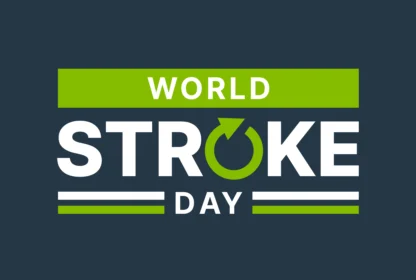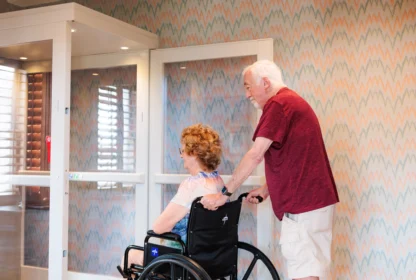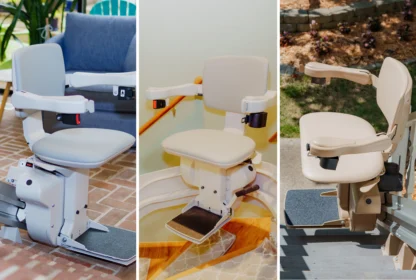
June is Alzheimer’s & Brain Awareness Month, a critical time to bring attention to the profound impact that Alzheimer’s disease and other dementias have on individuals, families, and communities worldwide. This month serves as a reminder of the importance of brain health and the need for ongoing research, support, and education. At 101 Mobility, we are dedicated to enhancing the quality of life for those affected by these conditions through our range of mobility solutions.
Understanding Alzheimer’s Disease
Alzheimer’s disease is a progressive neurological disorder that leads to memory loss, cognitive decline, and, ultimately, loss of independence. It is the most common cause of dementia, accounting for 60-80% of cases. The Alzheimer’s Association estimates that over 6 million Americans are living with Alzheimer’s, and this number is projected to rise to nearly 13 million by 2050.
The Importance of Early Detection and Diagnosis
Early detection and diagnosis of Alzheimer’s can make a significant difference in the management of the disease. Symptoms to watch for include:
- Memory loss that disrupts daily life
- Challenges in planning or solving problems
- Difficulty completing familiar tasks
- Confusion with time or place
- Trouble understanding visual images and spatial relationships
- New problems with words in speaking or writing
- Misplacing things and losing the ability to retrace steps
- Decreased or poor judgment
- Withdrawal from work or social activities
- Changes in mood and personality
If you or a loved one experience any of these symptoms, it is crucial to consult a healthcare professional for a thorough evaluation.
Brain Health: Tips for a Healthy Mind
Maintaining brain health is vital at any age. Here are some tips to help keep your brain healthy and potentially reduce the risk of cognitive decline:
- Stay Physically Active: Regular exercise increases blood flow to the brain and promotes the growth of new brain cells. Aim for at least 150 minutes of moderate exercise each week.
- Eat a Healthy Diet: A diet rich in fruits, vegetables, whole grains, lean proteins, and healthy fats can support brain health. The Mediterranean diet, in particular, has been linked to a lower risk of Alzheimer’s.
- Stay Mentally Active: Engage in activities that challenge your brain, such as reading, puzzles, learning new skills, and playing strategy games.
- Socialize: Maintaining strong social connections can help reduce the risk of cognitive decline. Make time for friends and family, and consider joining clubs or groups with shared interests.
- Get Quality Sleep: Aim for 7-9 hours of sleep per night. Poor sleep has been linked to an increased risk of Alzheimer’s and other dementias.
- Manage Stress: Chronic stress can negatively impact brain health. Practice relaxation techniques such as mindfulness, meditation, and deep breathing exercises.
- Regular Check-ups: Regular health check-ups can help detect and manage conditions that may affect brain health, such as high blood pressure, diabetes, and heart disease.
Supporting Those Affected by Alzheimer’s
Caring for a loved one with Alzheimer’s can be challenging, but there are resources available to help. The Alzheimer’s Association provides support groups, educational programs, and a 24/7 helpline. Additionally, creating a safe and accessible home environment is crucial for those living with Alzheimer’s. At 101 Mobility, we offer a range of products designed to enhance safety and independence, including stairlifts, wheelchair ramps, and home elevators.
The Role of Research and Advocacy
Research is essential in the fight against Alzheimer’s. Currently, there is no cure for the disease, but advancements in research are providing hope. Organizations like the Alzheimer’s Association and the National Institute on Aging are at the forefront of this research, working towards better treatments and ultimately a cure.
Advocacy is also vital. Raising awareness, participating in fundraising events, and advocating for increased research funding can make a significant difference. Every effort brings us closer to a world without Alzheimer’s.
Alzheimer’s & Brain Awareness Month is a time to educate ourselves, support those affected, and take action. By staying informed and proactive, we can all contribute to the fight against Alzheimer’s. At 101 Mobility, we are committed to supporting our community through awareness, education, and our range of mobility solutions. Together, we can make a difference in the lives of those living with Alzheimer’s and other dementias.
For more information and resources, visit the Alzheimer’s Association website at www.alz.org.
Sources:
Alzheimer’s Association. (2024). Alzheimer’s Disease Facts and Figures.
National Institute on Aging. (2024). Alzheimer’s Disease Information.


